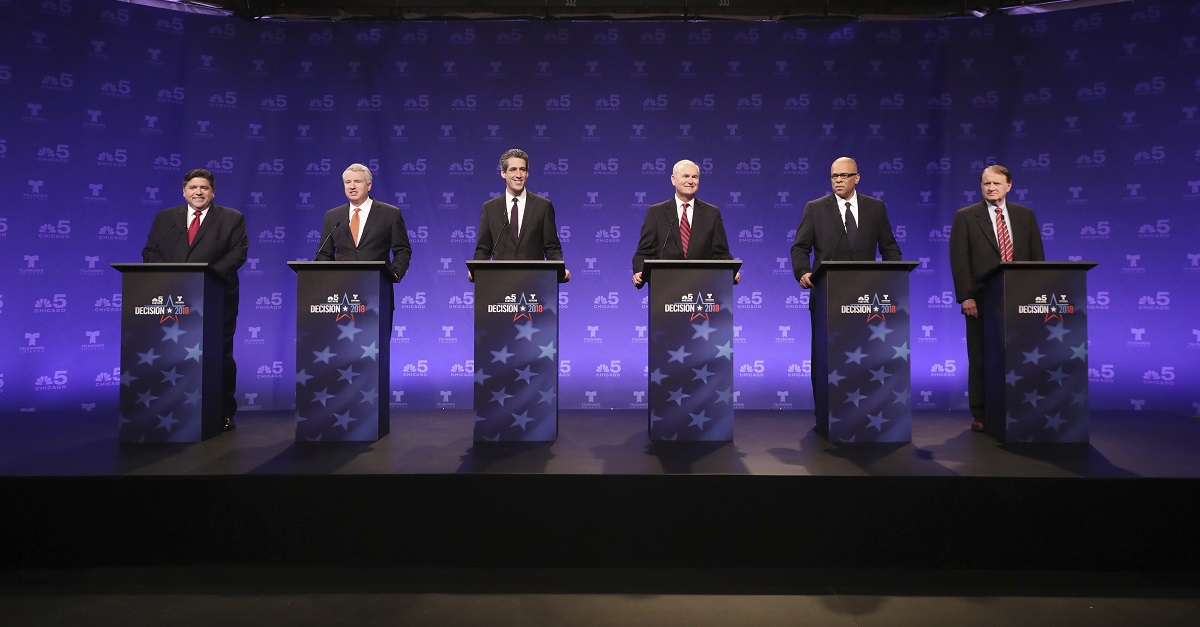Illinois faces a huge financial crisis and for most candidates running for Illinois’ next governor, the key is doing major work to our tax system.
Videos by Rare
According to a WGN report, almost all of the Democrats want the state’s wealthiest people to pay more in taxes but Republican Gov. Bruce Rauner says he will attempt to undo a recent income tax hike, his GOP rival saying he is not to be believed.
Rep. Jeanne Ives, conservative state Rep. is taking on Rauner in the March 20 primary, according to the news outlet. The following six men are seeking the Democratic nomination: state Sen. Daniel Biss, businessman Chris Kennedy, billionaire J.B. Pritzker, regional schools superintendent Bob Daiber, community activist Tio Hardiman and physician Robert Marshall.
On Feb. 14, Rauner will present his budget online, saying he will propose rolling back the increase over several years, to 3 percent for individuals, according to WGN. Rauner says he can accomplish the feat though not being able to halt the tax hike. Rauner also notes he can simultaneously put more money into education by cutting “wasteful spending.”
Much like Rauner, Ives believes that the best way to grow revenue is to further grow Illinois’ economy as well as tax base by making the state more attractive to job creators. Ives said she would work to get rid of the hike over time with the goal of reducing it annually by .25 percentage points but adds “only Legislature can make a repeal happen.” according to the news outlet.
WGN reports that Biss, Kennedy, and Pritzker have on multiple occasions declined to say what rates or income levels should be under a graduated income tax, saying it needs to be negotiated and that the decision needs to include a discussion about spending. Biss has said the rates would be “patterned after what we see in the neighboring states,” but that the state needs more money for schools and such income “requires significantly more revenue.” Kennedy told the editorial board of the Chicago Tribune that the “high end” of the range should be a number “that starts with a five.”
According to the news outlet, under Daiber’s plan, the rate would be 1 percent for those people who make between $2,500 and $24,999; 2.25 percent for incomes $25,000 to $44,999; 3.75 percent for incomes $45,000 to $149,999 and 4.95 percent for incomes $150,000 to $999,999. And those with incomes of $1 million or more would pay 6 percent.
Hardiman desires a scale where people making $1 million or more pay 8 percent to 10 percent, according to WGN. Incomes between $50,000 and $99,999 would be taxed 1 percent to 2 percent, and incomes consisting of $100,000 to $249,999 would be taxed 3 percent to 5 percent while those between $250,000 and $999,999 would pay 6-8 percent.
RELATED: Businessman preaches conspiracy, Rahm pushing blacks out of city
According to the news outlet, Kennedy says he’d take “two paths.” The long-term plan is to change the constitution which he said would “take years to accomplish.” but in the short-term would incorporate “progressivity” through earned income tax credit which aids both low and middle-income families.
Pritzker says changing from a flat to a graduated income tax “will take two years.” according to WGN. The only Democrat who opposes changing to a graduated income is Marshall, who says would be “a disaster” as “taxes are too high already.”



